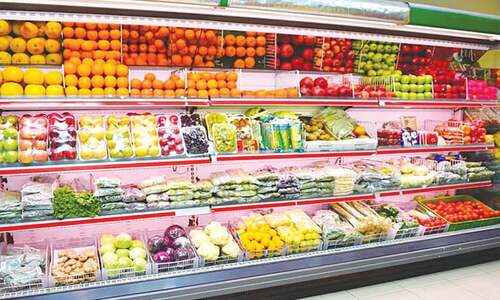ISLAMABAD: The country’s oil import bill shot to $17.03 billion during the first ten months of fiscal year 2021-22 (fiscal 2022), up 95.9 per cent compared to the $8.69bn recorded for the corresponding period of last year.
Higher oil prices in global markets and sharp depreciation of the Pakistani rupee made oil more expensive, exerting painful pressure on the external sector and resulting in a sharp widening of the trade deficit, according to the Pakistan Economic Survey released on Thursday.
The surge in the oil import bill was also attributed to an increase in demand.
The import of petroleum products was up 121.15pc year-on-year in terms of value and 24.18pc in terms of quantity. Crude oil imports were up 75.34pc in value and 1.4pc in terms of volume, while liquefied natural gas (LNG) imports were up 82.9pc and liquefied petroleum gas (LPG) imports were up 39.86pc.
The country’s dependence on LNG has increased in recent years due to depleting deposits of indigenous natural gas. Over the past three years, the stock of circular debt in the gas sector has nearly doubled to Rs650 billion, up from Rs350 billion in 2018. The government’s lethargic response to the sector’s issues created problems in the import of LNG by the private sector, which led to a gas crisis in the country, especially last winter, the survey pointed out.
In fiscal 2021, around 373 million MMBTU of LNG gas worth around $3.4bn had been imported, which accounted for around 30pc of the total natural gas consumption in the country. During the first eight months of the outgoing fiscal year, however, 75.64pc of the gas consumed was domestically produced, while 24.36pc of gas was imported.
Electricity generation from coal reached 5,280 megawatts (MW) during the period under review, with Thar coal contributing 1,320MW and imported coal 3,960MW, or 75pc, of the total. The heavy reliance on imported coal is likely to change as power generation units running on Thar coal are gradually added to the electricity generation mix.
Against the total hydropower potential of around 60,000MW, the country is still utilising only 16pc. The high investment cost for the installation of hydropower plants, development of electricity transmission networks and resettlement of affected population are a few reasons why hydropower is not being exploited to its full potential, the survey noted. The installed hydropower capacity at present is 10,251MW, which accounts for around 25pc of the country’s total installed capacity.
The gross generation capacity of nuclear power plants was 2,530MW in fiscal 2021, supplying about 7,076 million units of electricity to the national grid. It grew 39pc in the outgoing fiscal year to 3,530MW. Nuclear plants supplied 12,885 million units to the national grid during the period reviewed.
Thermal power still has the largest share in electricity generation in the country, although its percentage contribution to the overall mix declined from 62.5pc during the first ten months of last fiscal to 60.9pc during the corresponding period of fiscal 2022.
The first ten months of the outgoing fiscal year also saw slight shifts in the pattern of consumption of electricity. The share of households in electricity consumption slightly declined from 49.1pc in fiscal 2021 to 47pc in fiscal 2022. Electricity consumption in the commercial sector also witnessed a slight decline, standing at 7pc in fiscal 2022, down from 7.4pc in fiscal 2021.
The share of industry, on the other hand, increased to 28pc from 26.3pc last year.
Published in Dawn, June 10th, 2022













































